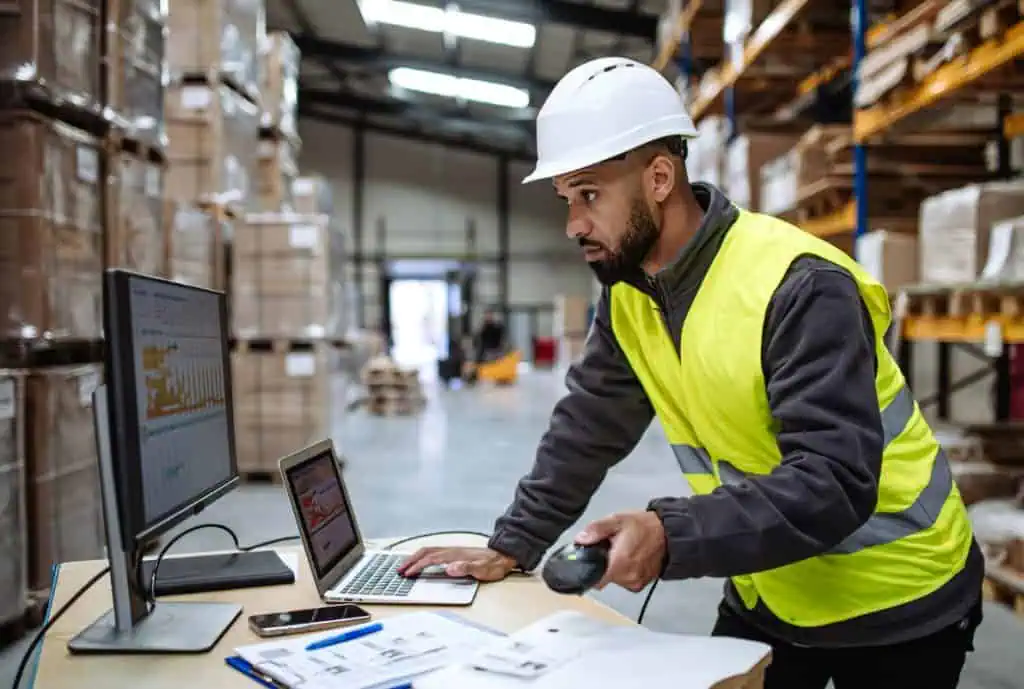Managing a construction project well means juggling many different tasks. You must plan, schedule, track progress, and keep everything on budget. It’s essential to ensure each step follows smoothly from the last and tackle problems quickly as they pop up.
Table of Contents
If you’re just starting with construction management or want to improve your approach, a clear and organized approach can noticeably impact your project’s success. Here is a guide on how to manage a construction project:

Steps to Manage a Construction Project
Define Project Scope
The key to a successful construction project is clear scope and goals. Defining the scope means outlining what needs to be built, including design details and overall expectations. This is when blueprints, project documents, and a detailed plan are created, giving everyone involved a clear path to follow.
Having clear goals is just as crucial. This covers the project’s timeline, budget, and specific quality requirements. Setting these objectives helps keep the project on track and reduces misunderstandings later.
When everyone understands the project’s aims and expectations, making decisions that match the intended outcome is easier.

Develop a Project Schedule
Making a realistic project schedule is important for keeping things on track. Break the project down into different phases, tasks, and deadlines. Begin with the project’s main goals, then focus on individual tasks within each phase.
A well-planned schedule ensures everyone knows what to expect at each stage. After setting your schedule, checking and updating it often is vital. Construction projects might face sudden changes due to weather, supply problems, or site conditions.
Regular updates help everyone know the current status and adjust their work if needed, reducing possible delays.
Manage Your Budget Carefully
Managing a budget is crucial for the success of any project. Once you’ve set a budget during the planning stage, tracking expenses as the project progresses is important. Divide the budget into clear categories such as materials, labour, equipment, and permits, and monitor how much is spent in each area.
It’s wise to set aside some extra funds for unexpected costs. Construction projects often face surprises, and having additional money ready can help prevent these issues from completely upsetting your budget. Regularly checking and making thoughtful changes are essential for handling project finances well.
Use Construction Software
Technology makes project management easier, and construction ERP software is one of the most valuable tools. This software gives you a central place to handle scheduling, budgeting, resource allocation, and team communication.
It simplifies tracking every project part and reduces the chance of mistakes or oversights. With real-time data and automated updates, project managers can track progress, tweak schedules, and adjust budgets as needed without overlooking critical details.
Another benefit of construction ERP software is better communication among team members. Features like document sharing, task assignments, and notifications keep everyone updated on the latest project news.
This is particularly helpful for keeping remote team members informed and ensuring that information is available when needed. Using construction software boosts efficiency and gives insights to make proactive decisions, keeping the project on track from start to finish.
Build a Strong Team
The success of a construction project depends heavily on the quality of your project team. Pull together a group of experienced professionals, such as contractors, engineers, and any necessary specialists. Getting the right people ensures that each task is done professionally and with care, from digging the first hole to adding the final touches.
A strong team also thrives on good communication. Regular meetings and clear channels keep everyone updated about their duties, project changes, and deadlines. With defined roles and open communication, each team member can concentrate on their part of the project, making for a smoother workflow overall.
Prioritize Safety Measures
Safety should be a key focus in any construction job. A clear safety plan helps stop accidents, reduce delays, and keep everyone safe while staying on track. Ensure everyone knows the safety rules and has the right gear and training for their tasks.
Do regular checks to spot any risks early. Also, ensure your site follows local and federal safety laws to avoid legal troubles that could slow things down. A safe work site helps your team stay alert and productive, letting the job move along smoothly without problems.
Maintain Open Communication Channels
Clear communication is key to managing all the parts of a construction project. Set up regular meetings with your team to discuss progress, address any concerns, and inform everyone about schedule or budget changes.
These meetings are also a great chance to gather feedback and insights from different team members, as they might have useful ideas on improving processes or tackling challenges.
Encouraging team members to ask questions or provide updates as they work also helps keep the project on track. When communication is open and responsive, it’s easier to spot and fix minor issues before they become major problems. This proactive approach strengthens teamwork and keeps each project phase moving smoothly.

Quality Control Throughout Each Phase
Quality control should be part of every project step to ensure the final outcome meets standards and expectations. This means regularly checking the work against project specs and fixing any issues immediately.
For example, materials need to be checked before being used, and finished work should be reviewed to ensure it meets quality needs. Regular quality checks help avoid expensive rework and keep the project on course.
Fixing any quality problems early lets your team address them quickly, keeping the project in line with what the client expects. Maintaining high standards throughout leads to a final product that meets or even exceeds project goals.
Final Inspection and Project Handover
The last stage of a construction project is checking the finished work to ensure everything is correct and matches the agreed-upon details. A detailed inspection ensures the project is safe, works well, and is ready to use.
Review each part of the project with your team and any stakeholders involved, handling any final changes or touch-ups. After the inspection, you can hand over the project.
This is when you give the completed work to the client, ensuring they have all the needed documents and warranties. A smooth handover leaves a good impression and shows the quality of the whole project. This last step is important for keeping clients happy and can lead to future projects.



